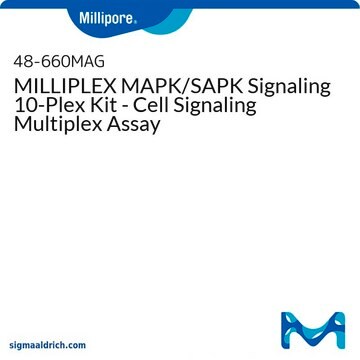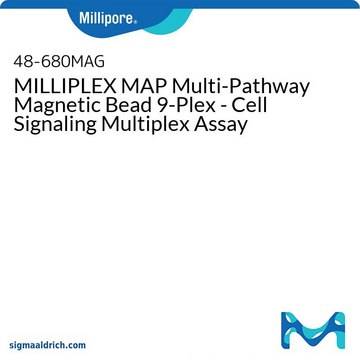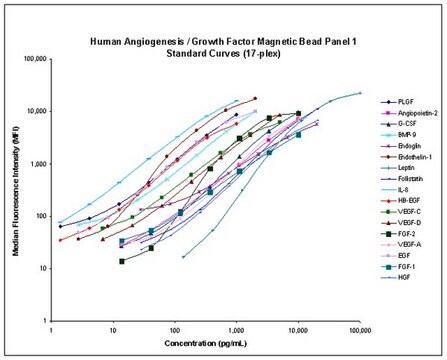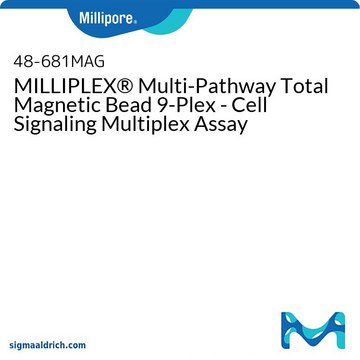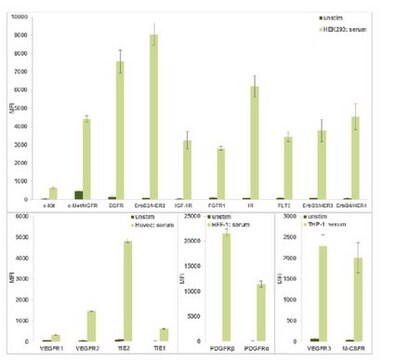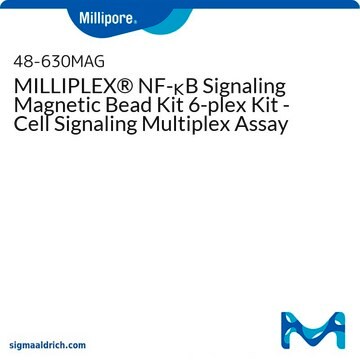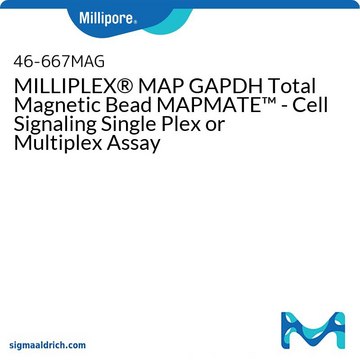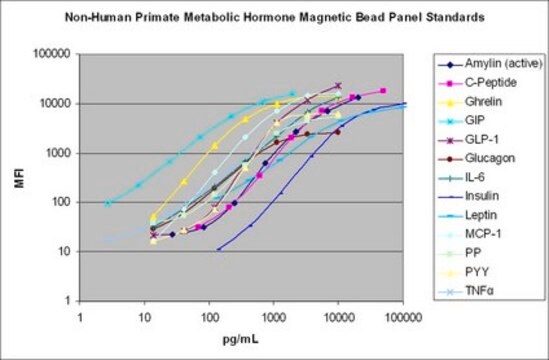48-610MAG
MILLIPLEX MAP STAT Cell Signaling Magnetic Bead 5-Plex Kit - Cell Signaling Multiplex Assay
Synonym(s):
Magnetic Bead STAT Kit, STAT Cell Signaling Kit
About This Item
Recommended Products
species reactivity
human
Quality Level
manufacturer/tradename
Milliplex®
technique(s)
multiplexing: suitable
detection method
fluorometric (Luminex xMAP)
storage temp.
2-8°C
General description
Specificity
Application
- An overnight (4°C) incubation is recommended for best results.
- This assay requires 25 μL diluted cell lysate per well.
- This kit must be run using Assay Buffer 1 (provided).
- 1 - 25 μg cell lysate/well (recommended starting concentration is 40 to 1,000 μg protein/mL).
Signaling|Apoptosis & Cancer
Packaging
Storage and Stability
Legal Information
Disclaimer
signalword
Danger
hcodes
Hazard Classifications
Acute Tox. 4 Oral - Aquatic Acute 1 - Aquatic Chronic 2 - Eye Dam. 1 - Skin Irrit. 2
Storage Class
10 - Combustible liquids
flash_point_f
Not applicable
flash_point_c
Not applicable
Certificates of Analysis (COA)
Search for Certificates of Analysis (COA) by entering the products Lot/Batch Number. Lot and Batch Numbers can be found on a product’s label following the words ‘Lot’ or ‘Batch’.
Already Own This Product?
Find documentation for the products that you have recently purchased in the Document Library.
Related Content
Uncover how cells communicate with MILLIPLEX® cell signaling multiplex assays. Multiplexing with cell signaling phosphoprotein assays based on Luminex® xMAP® technology helps researchers measure phosphoproteins and total proteins within the same or different pathways from a single sample.
See how MILLIPLEX® multiplex immunoassays offer researchers the ability to simultaneously quantitate a large number of human cytokines, chemokines, and growth factors, and detect human immunoglobulins against SARS-CoV-2 antigens, to better understand the immune response to COVID-19, including cytokine storm.
See how multiplexing the inflammation signaling pathway with MILLIPLEX® inflammation assays or cell signaling assays can help researchers bridge the gap between immunology and cell signaling, including investigating T cell signaling, Th Cell differentiation, inflammatory response signaling, and sepsis signaling.
Our team of scientists has experience in all areas of research including Life Science, Material Science, Chemical Synthesis, Chromatography, Analytical and many others.
Contact Technical Service